Other languages : Arabic,
At first, students reconsidered morning life, focusing on breakfast, based on what they learnt in home economics-lessons, then found the issues for better physical health and realization of a better life, and finally became to act spontaneously to imrpove the issues.



Target grades:
Activity Category:
Time:
6th grades in primary school
- Home economics (2 times ×1 class (45 minutes))
- Tokkatsu (Classroom activity (2)) (1 class (45 minutes))
- Morning and end of day meeting (Daily reflection)
- Students assembly (15 minutes)
![]()
Aims
-
Each student rethinks about her/his morning life, focusing on breakfast, in addition, rethinks about her/his daily life.
-
Each student develops an attitude of willingness to practice toward one's goal.
![]()
Teaching materials and equipments
- A summary of the results of a questionnaire on breakfast
- A nutrients diagram
- Worksheet: personal goal card
![]()
Implementation Procedure
Beforehand:
In home economics lesoon "Let's make things better in the morning", students relfected on their daily-life. Focusing on morning time, it became clear that there were issues with morning life time.
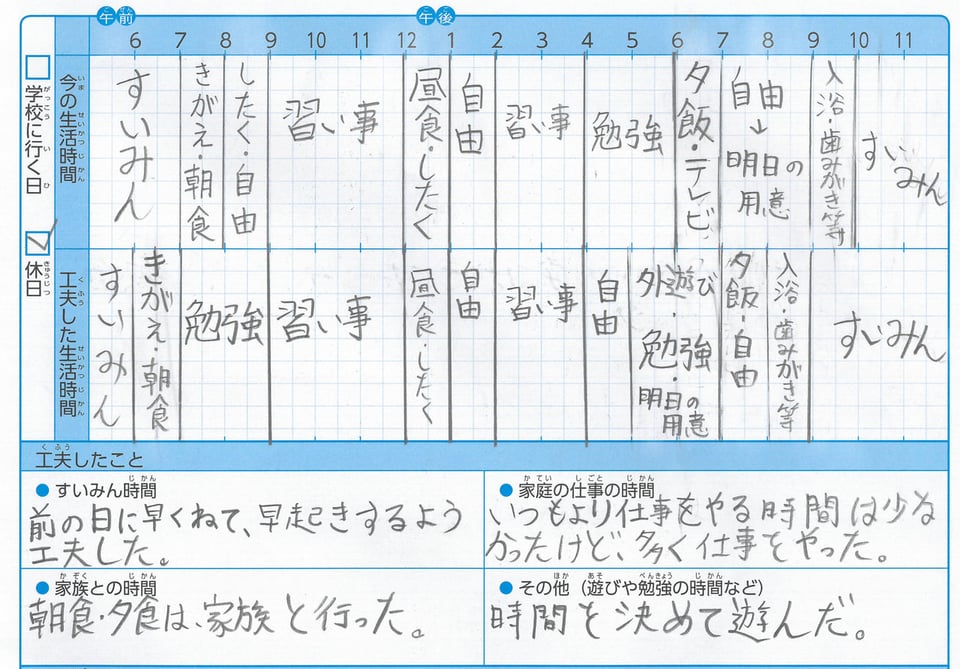
Beforehand:
Thus, a class teacher decided to take a lesson (classroom activity 2) to improve these issues, in cooperation with a nutrition teacher as T.T., based on annual curriculum. For realizing students' status and using it as an evidence in the lesson, the class teacher conducted a questionnaire for the students about breakfast.
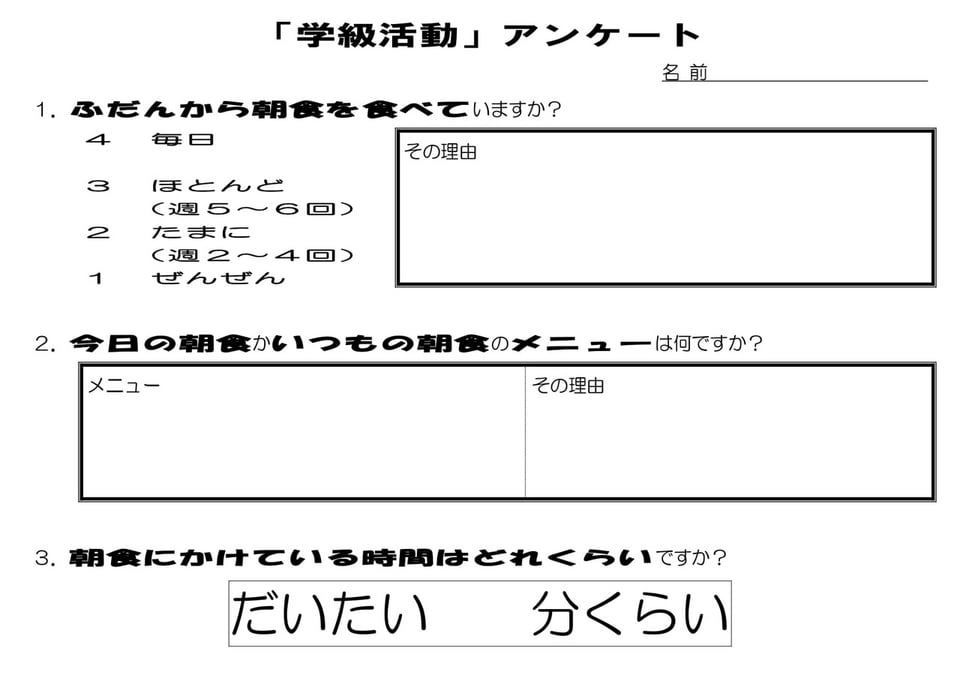
In the lesson, step 1 "Grasp":
The class teacher presented the results of the questionnaire, and guided the students to realize "how we/each of us take breakfast and how each of us think of it", then presented the objective of this lesson.
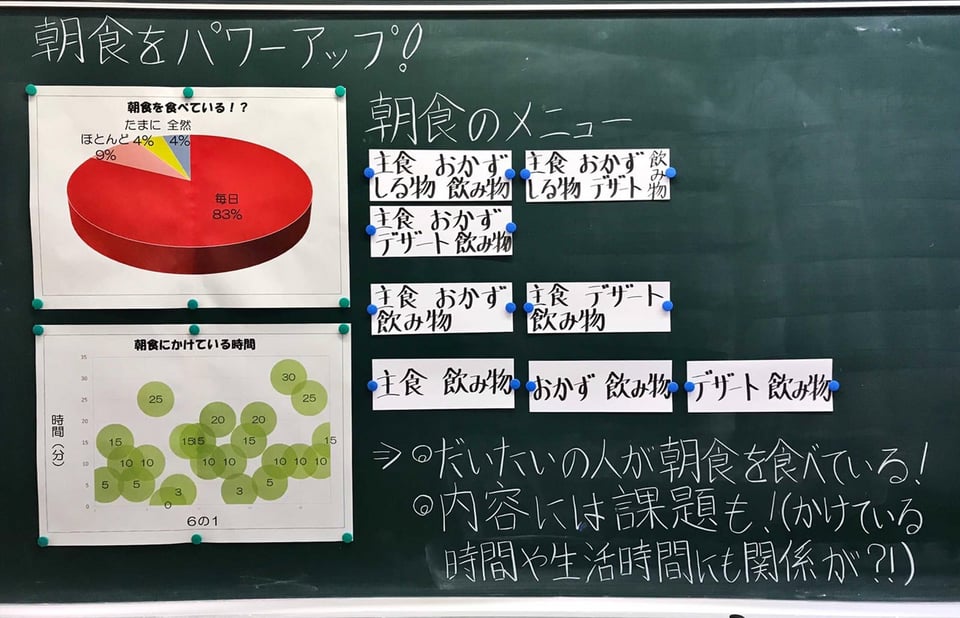
In the lesson step 2 "Search":
The students reflected on their own breakfast and thought about "how breakfast should be", referring to what the the nutrition teacher taught them.
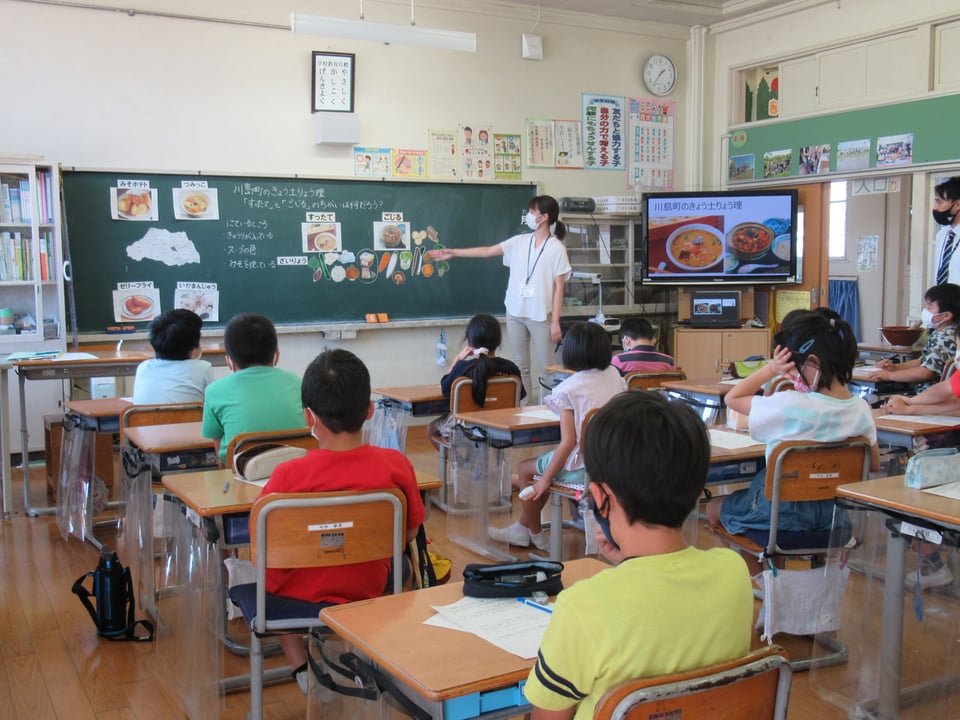
In the lesson step 3 "Find":
The students discussed in groups about "how to power up breakfast and what specific things to do".
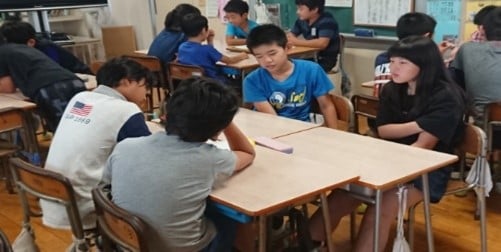
In the lesson step 4 "Decide":
Based on the discussion, each student made decisionsabout the goal that she/he think that she/he can achieve, then the students presented to each other the goal. After that, they were given some time to revise the goal by referring to their friends' goals, if necessary.
*Students wrote their goal in worksheet "personal goal card"
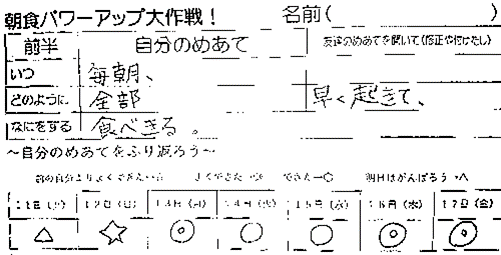
After the lesson:
The students practiced their goal at home and reflected daily, during one week. (*Students wrote their evaluation by themselves in the worksheet, daily.)
After the one week, they reviewed their practice/effort, and, if they want to modify the goal, they changed it to be feasible so that they could continue their practice.
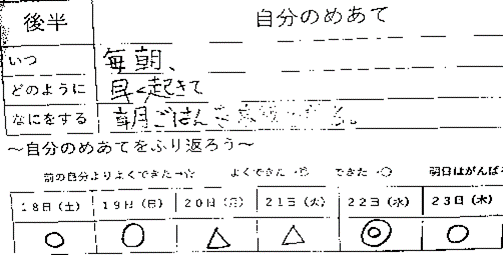
After the lesson:
The parents/guardians wrote the comment/feedback for students in the worksheet. By collaborating with the parents/guardians, the students were motivated to continue on practicing it.
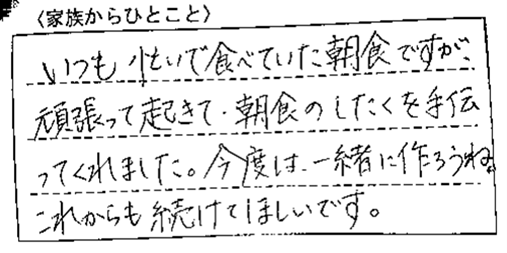
After the lesson:
Some students, belonging to the school lunch committee, spontabeously took the initiative in expanding their practices for other students, such as by holding quizzes and plays to encourage the other students to eat a balanced diet at students' assembly.
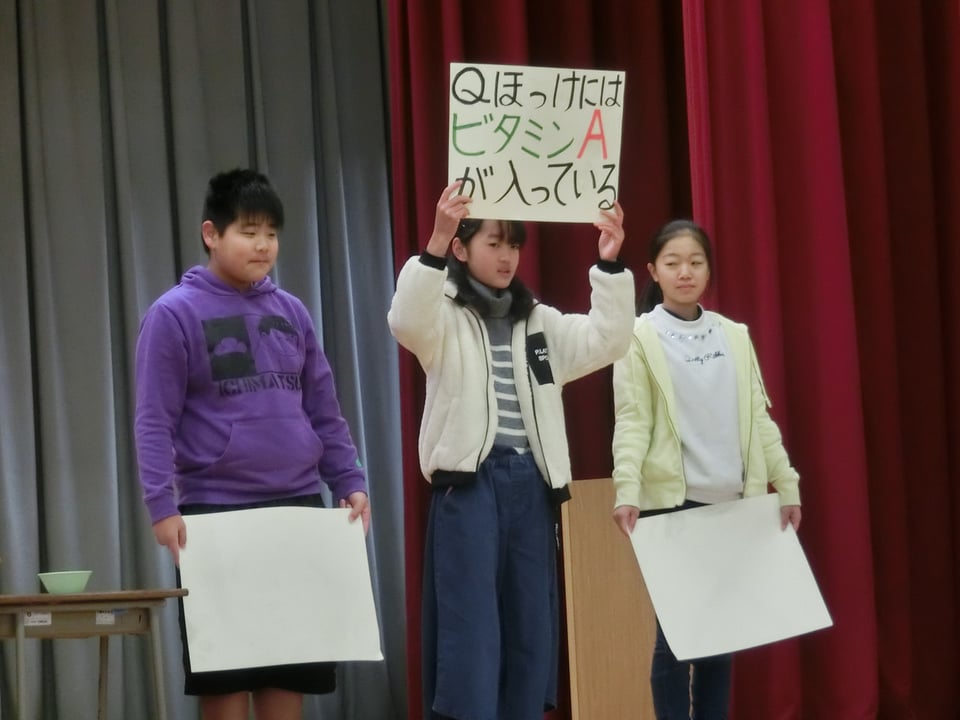
![]()
From the author

- This activity can be done at any grade level, but it needs to be developed in a different way, depending on the level of each grade .
- If a teacher can hold this lesson on parent's day, it is expected that the parents can support for students to practice at home. However, since the living conditions of each family are different, the teacher is required to considered well.
![]()
References
![]()
Explanation of terms
|
Home economics |
Home economics lessons starts from 5th grade of elementary school and above. It has one or two lessons (45-90 minutes) per week. Its aim is to develop the ability to lead a healthy and cultural human life, with a focus on family life, and the ability to solve life problems and create a life. It has textbooks, approved by the Ministry of Education, Culture, Sports, Science and Technology. |
|
Nutrition teacher |
As the surrounding social environment has changed significantly, the eating habits have become more diversified. It has been pointed out that children's eating habits are disturbed, such as not having breakfast. It is necessary for children to acquire "self-management ability" and "desirable eating habits" to control their diet by making their own decisions based on correct knowledge about nutrition and how to eat. For this reason, "nutrition teachers" who play a central role in promoting food guidance (food education in schools) are assigned to schools. |
|
School lunch committee |
Every elementary school in Japan has a studnets' council, and they are divided into various committees to work on creating a better school life. The school lunch committee is one of these committees, where the students work independently and practically on the theme of nutirtion education while being implementning it in creative ways. |
|
Students' assembly |
One of the activities in students' council is "a group activity in which all the students in the school or grade participate", which is called as "Students' assembly". The "Students' assembly" is held on voluntary and self-governing basis, which means, it is different from school events, in terms of planning and management. |
|
Parents'/guardian day (day when parents observe their children in school) |
The school provides an opportunity for parents/guardian to visit the school and observe "how teachers teaching and how their children taking lesson and learning". Thereby, the parents/guardian can deppen their understanding of the educational activities in the school and establish good relationship with teachers. |
-
-
ツイート -
LINEで送る
関連記事
前へ
How to brush your teeth properly to protect your precious teeth.
次へ
Establishing Healthy Lifestyle in Young Children through Rotating Roles